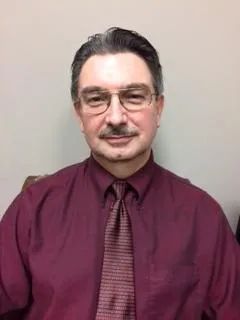Musical Money

Mincey’s Musings
Year Two, Week Fourteen
Those who know me well probably won’t believe this, but the first money I remember earning was for singing.
When I was about four or five years old my family rented a house on Academy Street in downtown Maynardville. The yard did not have much grass in either the front or the back.
The front yard was mostly consumed by a coal pile. I remember once I fell off the front porch into the coal pile, resulting in painful skinned knees.
I fared no better in the back yard. When we lived there, there was no indoor bathroom—there was an outhouse as close to the back of the lot as possible. Often my mother would rinse the chamber pot and empty the rinse water into the muddy back yard. I remember once falling off the back porch and into the muddy muck. As I fell, I obviously screamed, and hit the mess with my mouth open. The result was not pleasant.
I also conducted my first scientific experiment in this house. I stuck a bobby pin into an electrical outlet, and the pin conducted electricity all the way up my left arm. Perhaps this is what developed a quick reflex to avoid pain in the future.
My half-brother Jerry Sampson lived with us for a while. He was just finishing high school, and he had worked a part-time job and bought himself a console stereo. I loved to hear records played on that stereo. Unfortunately, Jerry married and took his stereo with him. I probably pined over the loss of hearing records, for soon after my father bought a small cabinet model stereo. He was afraid I would mess with it and damage it, so he had Irby Monroe build a platform for it to sit on.
I did not tear up the stereo, but I remember standing in a straight back chair so I could watch one record in particular go round and round on the turntable. It was a Columbia Special Products record (“18 Great Country Hits”) that Mother ordered from television. It was one of my all-time favorite recordings, and I still have it today.
I would sing along and imitate the singers, as most children can do before their voices change during adolescence. It didn’t matter if the singer was male or female, single or a group, I could sing lead with the best of them.
Our landlord was Kenneth D. (Buck) Buckner. His wife Jessie was my mother’s Sunday School teacher, and also an English teacher at Horace Maynard High School, as I was later to learn. I don’t know what I sang for Buck. Perhaps it was Carl Smith’s “Foggy River”, or Roy Acuff’s “Wabash Cannonball”, both of which were on the record. It might even have been Patsy Cline’s “Walkin’ After Midnight” or Johnny Horton’s “North to Alaska”. (For a special treat, look these songs up on Youtube and enjoy!)
Buck was very complimentary of my singing ability, so much so that I told him, “Most people pay me for singing.” Buck thought that was hilarious. Perhaps others did pay me for singing, but Buck paid me the first money I ever remember earning, a whole quarter!
I would say now that most people would pay me not to sing. In the days before Central Finance, the Union County Board of Education had its own finance manager, Glenn Coppock, in house. Glenn is the song leader at Hubbs Grove Baptist Church. I was singing in the Central Office one day, and Glenn told me that I had better keep my day job.
Wonder if Buck Buckner would have agreed with him? Maybe they just had different tastes in music, or perhaps adolescence robbed me of my fine voice. Regardless, I didn’t ask Glenn to pay me, for I feared I would be the one to have to pay him for listening, and since he cut my paycheck, I did not think it wise.
I leave you this week with a quote I found on Internet by one of Union County’s finest sons, the Country Gentleman himself, the late, great Chet Atkins:
“When I was a little boy, I told my dad,
‘When I grow up, I want to be a musician.’
My dad said: ‘You can’t do both, Son.’”
- Log in to post comments